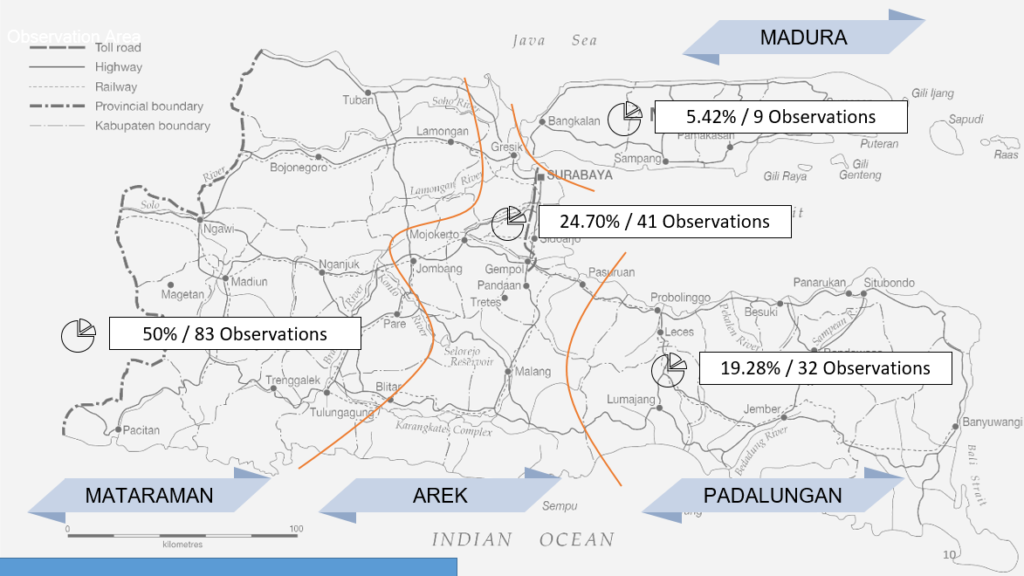On 21 November 2017, The Innovation for Indonesia’s School Children (INOVASI) hosted the first FKP seminar in November 2018 at the Ministry of Education and Culture. INOVASI is a partnership program between the Australian and Indonesia government which aims to improve the quality of numeracy and literacy skills of Indonesian students at primary level through innovations that follow local contexts. Currently there are twelve targeted regencies spread across West Nusa Tenggara, East Nusa Tenggara, East Java, and North Kalimantan. In this session, two speakers from INOVASI, Muhammad Akrom and Rima Prama Artha, discussed the results of their observations in Sumbawa, West Nusa Tenggara, and some regencies in East Java.
Akrom, being the first one to present, shared his observation and case study analysis result regarding the effectiveness of Kelompok Kerja Guru Gugus 1 (KKG 1, Eng: Teacher’s Working Group Batch 1) in Moyo Hulu District, Sumbawa. For those who aren’t familiar with the term, KKG is a group of teachers in the same school or region who holds meeting regularly to improve their knowledge and pedagogical skills by sharing thoughts and experiences. KKG 1 was identified as a potential positive defiance case as the teachers in the group had shown creative ways to capture student’s interest and built a structurally better teaching process compared to other KKG. However, it appeared that KKG 1 Moyo Hulu had not yet succeeded in leveraging academic achievement in the respective schools as the average National Examination score of KKG 1 Moyo Hulu in 2015 (53.48) was still below that of Sumbawa Regency (54.73). Akrom mentioned that such ineffectiveness was due to the content of KKG regular meeting that revolved around administrative issues instead of knowledge sharing. But, there is still room for improvement because the teachers were seen to be highly motivated and committed to the KKG despite geographical limitations.

Sites of the study on innovative educational practices in East Java
Next, Rima presented a study that is intended to lay out innovative educational practices in East Java. Through the initial literature review, the team found 85 activities from 1975 to 2015, and divided these activities into three types of innovation: class teaching quality, teacher support, and learning for all. Due to time limitation, only 6 potential practices in Sekolah Dasar (SD, Eng: elementary school) were chosen after going through tight selection based on its uniqueness and highly contextual case. Those practices are Greatest Common Divisor learning process using seeds in SDN Mojokarang, literacy movement in SDN 2 Kebon Dalem, high quality of leadership shown by headmaster in SDN 2 Sumber Gondo and SDN 1 Punten, garage school, and inspirational school supervisor. All of these schools had several characteristics in common, i.e. the presence of strong figure in the school (headmaster/senior teacher, supervisor/founder), support from parents and third parties, and also the existence of a learning community comprising teachers in which the teachers could share their knowledge.
Both presentations in this session gave the impression that teachers are still a central figure in Indonesia’s education system. Therefore, while the national discourse of educational outcomes improvement may have been concentrated on the curriculum, it is also important to look closer into teacher’s ability to encourage students to study and spread innovative teaching methods to others.




